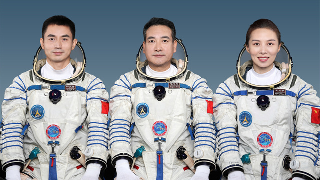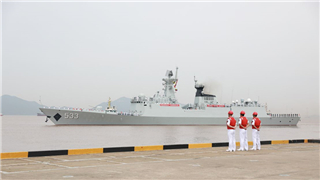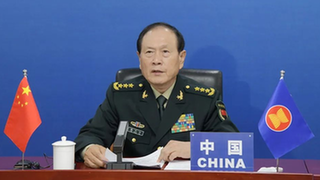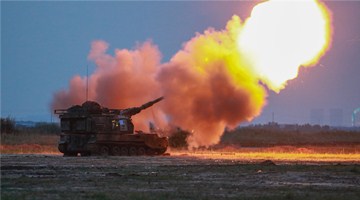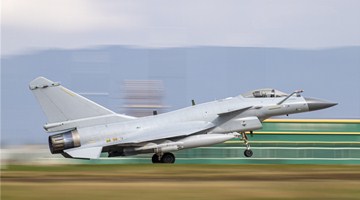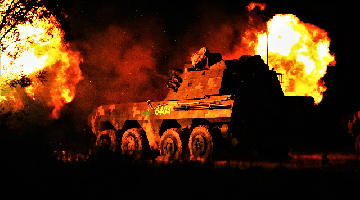By Zhu Ri
The NATO summit was recently held in Madrid, Spain. The leaders of Japan and the Republic of Korea (ROK) attended the event for the first time, which has drawn great attention. NATO, the North Atlantic Treaty Organization should have an organization in central and eastern Europe as shown by its name. However, why has it extended its tentacles to the Asia-Pacific region? Why did Japan and ROK, two non-NATO members, approach NATO, the world’s largest military alliance?
The US-led NATO means to extend its operation scope to the Asia-Pacific region and confront China and Russia by winning over Japan and ROK. During the summit, China has been identified for the first time as a “systemic challenge to Euro-Atlantic security” in NATO’s new strategic concept. NATO Secretary-General Jens Stoltenberg said that NATO would respond to any move that may challenge the interests, security and values of the NATO member states.
As a matter of fact, there is the political self-interest of some individual countries including the US lying behind NATO's stress on the so-called “China threat”. The US has always regarded China as its biggest competitor and never concealed its intention to contain China. Under the leadership of the US, NATO has naturally turned out to be a tool for the US to maintain its hegemony. Bringing NATO’s tentacles to the Asia-Pacific region, the US is trying to reshape the strategic environment around China with the help of the world's largest military alliance, so as to counterbalance China’s development and better implement its hegemonic policy.
As the US' Asia-Pacific partners, Japan and the ROK have to closely follow in the footsteps of the US, while on the other hand, having self-interests considered in moving closer to NATO.
According to Japanese media reports, Japanese Prime Minister Fumio Kishida called on NATO to turn its attention to Asia at the summit. Japan has expected to strengthen its weakness in the military through frequent interactions with NATO and realize its ambition to be a great power. Although the Japanese economy ranks third in the world, Japan has never considered itself a “normal country” as a defeated country in World War II due to the restriction of the pacifist post-World War II constitution. For a long time, Japan has tended to develop offensive weapons and increase defense spending, and even some Japanese politicians have tried to undermine the pacifist constitution and get rid of the restriction on its military.
Recently, the Liberal Democratic Party of Japan (LDP) has proposed to the government to revise three documents including the National Security Strategy (NSS), a long-term guideline for its foreign and security policies, and requested that Japan’s defense spending be doubled, accounting for more than 2% of the current gross domestic product (GDP). As a defeated country in the World War II, Japan has no self-reflection based on history; instead, it tends to get closer to the world's largest military alliance and act as a “vanguard” of NATO. This move will exacerbate tensions in Asia and is not conducive to peace and stability in the Asia-Pacific region.
The ROK may discuss the nuclear issue on the Korean Peninsula at the summit, and meanwhile, expand its international partnerships and enhance its global status. According to Yonhap News Agency, ROK President Yoon Suk-yeol will take the opportunity of attending the NATO summit to strengthen strategic cooperation with NATO with the expectation of establishing partnerships in the second half of the year. During the summit, the two sides will discuss the cooperation between the ROK and NATO member states in the fields of economy, technology and human rights. It’s reported that President Yoon Suk-yeol will seek to discuss the ROK’s Indo-Pacific strategy with European partners in multiple bilateral talks. In addition, the ROK also seeks to dispatch a permanent mission to NATO in Brussels, Belgium.
Looking back on history, it can be found that NATO has always been a “troublemaker” since the end of the Cold War and has never given up the Cold War mentality of engaging in provoking bloc confrontation. Over the past 20 years or so, NATO has expanded eastward five times, having reached Russia’s doorstep; meanwhile, NATO member states are frequently seen in large or small military conflicts around the world. As major countries in the Asia-Pacific region, Japan and the ROK should have strived to promote regional peace and development; however, they have chosen to get closer to NATO, acting in a completely opposite way. This will only lead to a negative effect on the Asia-Pacific region and themselves.
NATO is of no need in the Asia Pacific region. As Chinese Foreign Ministry spokesperson Zhao Lijian has said, the US-led NATO should abandon the Cold War mentality and zero-sum game mindset, and stop making enemies. NATO has already disrupted Europe, and it should not seek to mess up Asia and even the whole world.
Editor's note: This article is originally published on cankaoxiaoxi.com, and is translated from Chinese into English and edited by the China Military Online. The information, ideas or opinions appearing in this article do not necessarily reflect the views of eng.chinamil.com.cn.
